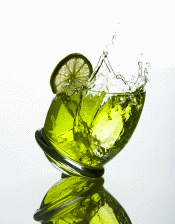The choice of an alcohol treatment center is not an easy one. There are innumerable options. You need to ask yourself before you pick a facility treatment, do you know what you need and what you are looking for?
Read Alcohol Treatment Facilities checklist for questions you need to ask before choosing a treatment facility.
Attending a residential alcohol treatment center greatly increases your chances of recovering successfully from alcohol dependency.
However, many are wary of them because of fear of the unknown. Read our guide to Residential Alcohol Treatment Centers and learn what you can expect at a residential center and the different programs they provide.
There are many reasons why you might not want to go to an inpatient alcohol treatment center.
Read outpatient alcoholism treatment to discover the pros and cons of outpatient treatment, who should and shouldn’t try to get sober at home and a discussion of the success rates of the two treatment types.
An alcohol treatment center can only do so much to help you get sober. They help you detox from alcohol, and give you the tools to help you lead an alcohol free life. The rest is up to you.
One tool that can help greatly in staying away from alcohol is a good and comprehensive relapse prevention plan tailored just for you.
Read The Relapse Prevention Plan Explained to discover strategies for preventing relapse. You can also draw up your own relapse prevention outline.
Relapse triggers are thoughts, emotions and reactions in response to people, places and events that can ‘make’ a recovering alcoholic return to drinking.
Read Alcohol Relapse Triggers to discover the most common triggers, and what to do when you find yourself experiencing such thoughts and feelings.
When it comes to choosing the right treatment for alcoholism it can seem like entering a foreign land. The terminology alone is enough to set your head spinning. Read Alcohol Dependency Treatment Options to get a better understanding of what is on offer.
A ‘dry drunk’ is a person who has given up drinking and yet retains all the behavioral, emotional and psychological aspects of the condition. It usually occurs as part of a condition referred to as post-acute withdrawal syndrome.
To learn more about the syndrome, the signs and symptoms and what to do if you think you might be a ‘dry drunk’, read Dry Drunk Syndrome.
Alcoholic TremorsTremors are one of the most common symptoms of alcoholism, and most often result from withdrawal from alcohol. These generally start within 5 to 10 hours after the last alcoholic drink and usually peak at 24 to 48 hours. This condition can be life threatening, and needs to be treated immediately.
To learn more about this condition, which is also known as delirium tremens, read Alcoholic Tremors.
Those in the final stages of alcoholism are suffering from the physical and psychological consequences of unbridled alcohol consumption over many years.
These advanced alcoholics require a specific treatment program that addresses issues and problems specific to them. Do you need more help determining which treatments can help you on your journey to sobriety? Contact a treatment provider today
Return from Alcohol Addiction Recovery to Alcoholism Help Homepage
 So alcohol addiction recovery is a threefold process: the behavioral, psychological and physical aspects of the addiction have to be addressed.
So alcohol addiction recovery is a threefold process: the behavioral, psychological and physical aspects of the addiction have to be addressed.

